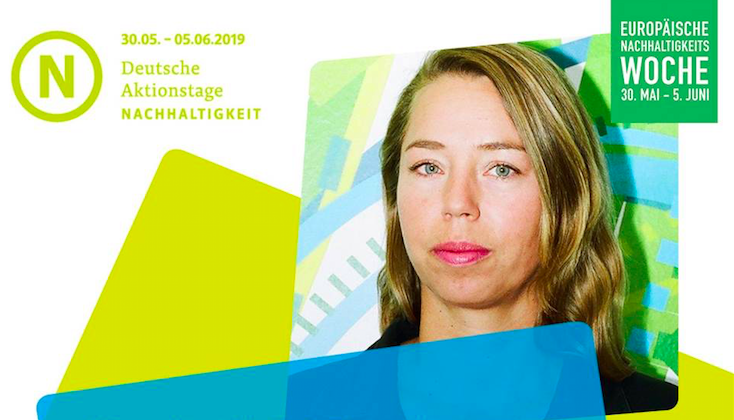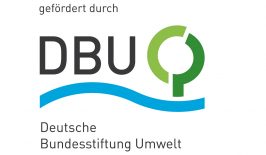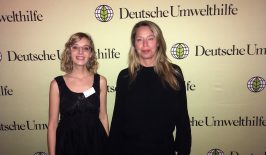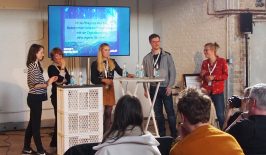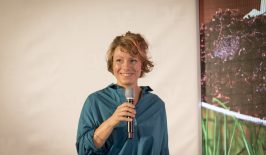The #tatenfuermorgen (#actionsfortomorrow in German) platform set up by the German Council for Sustainable Development (RNE) is aimed at all those who are dedicated to making society sustainable, want to contribute towards the implementation of the United Nations’ 17 Sustainable Development Goals and are interested in finding out about the latest participation projects being run by the German Council for Sustainable Development (RNE).
The editorial team behind #tatenfuermorgen has interviewed several experts, including Uta Mühleis, founder of RESET, who told them about RESET’s mission, principles and hopes for the future.
Why is digitalisation important for sustainable development?
“Digitalisation is developing at an unstoppable rate. And sustainability is essential for the future of the planet. So there are two aspects to take into account when answering that question: On the one hand, digitalisation offers new opportunities for solving the most pressing challenges of our time – for overcoming the digital divide, tracing supply chains and using satellites to protect wildlife and monitor deforestation. While at the same time, it’s crucial to ensure that the ongoing global digital revolution develops in a way that takes social and ecological concerns into account – avoiding e-waste, using green energy in data centres, and protecting and securely handling personal data. We are facing many challeges, but we believe in the potential of these two interconnected developments: digitalisation and sustainability. At RESET it’s our mission to take a closer look at those developments, find out what’s working, what isn’t, how we can ensure that t monitor them critically. This is exactly what we are doing with
How do I become a Social Entrepeneur or Ecopreneur?
“You need to be truly passionate about the field you’re working in and and be deeply determined. Developing a sustainable innovation and carving out that path for yourself often requires a lot of patience. Not to mention the fact that first you have to come up with an innovation solution for a social or ecological problem – one that has a business model that works. There are specially-designed entrepreneurial courses and prizes to help you with that, and they can be a good place to start. Special grants and funding sources are still few and far between, but you should make the most of the offers that do exist, be it free work spaces, consulting, networks or capital. Your aim should be to make the business so large that you can truly tackle the problem at hand effectively, while at the same time ensuring that it can survive sustainably.”
How do I bridge the gap between the online world and the real world?
“By bridging the gap from knowledge to action. The digital world gives us immense access to knowledge and information. If it’s applied in the right way, that knowledge can act as a motor for sustainable development – e.g. in the form of apps that enable sustainable consumption and fair trade, by allowing you to locate small-scale green energy providers near you, or through smart transport sharing. Digital access also makes it easier to get involved in real-life problems, via donation platforms, crowdfunding or online volunteering. Of course, demos, citizen society movements and petitions are still strong democratic instruments, but digital tools can make them even stronger.”
What are your own personal #actionsfortomorrow?
“To continue our work at RESET, of course – investigating and reporting on all kinds of aspects of “digital for good”, creating critical solutions-oriented journalism for our wide range of readers and accompanying new green and socially-innovative startups that are bringing a breath of fresh air into our economic system. In my private life, I also try to shape the world around me as sustainably as possible. This includes working at the Holzmarkt, the home of the RESET team in Berlin, where hopefully in the future we’ll continue developing the space with environmentally-friendly building materials. And also at the housing cooperative Spreefeld, where I live, where I’m dedicated to creatng the most natural and biodiverse outdoor space possible. The sight of the wild bees on my balcony in the morning is a great motivation for even more #actionsfortomorrow”.
